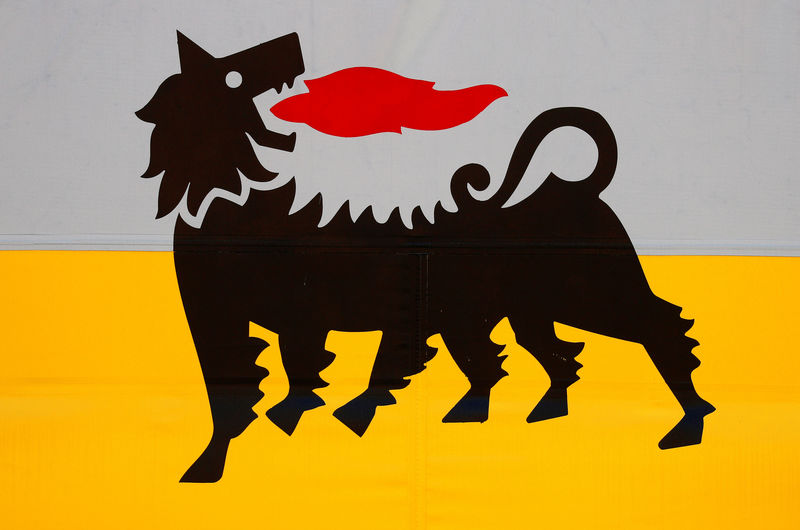MILAN (Reuters) - Italian oil and gas group Eni promised investors higher returns on Friday through a share buyback and bigger dividend, pledging strong cash flow growth over the next four years.
In its 2019-2022 plan the company announced a four-year buyback programme with an initial allocation of 400 million euros (341.6 million pounds) this year and a 3.6 percent rise in its dividend to 0.86 euros in 2019.
It said after this year the buyback would be 400 million euros per year with Brent prices between $60-65 per barrel but would rise to 800 million euros if Brent was above $65 a barrel.
Brent crude was trading around $67 a barrel on Friday.
"We will generate some 22 billion euros free cash over the plan in our upstream business, almost double our dividend need," Chief Executive Claudio Descalzi said on a conference call.
Over the last year the world's top oil and gas companies have come under pressure to return more cash to shareholders as profits and oil prices rise after a three-year crunch.
Oil and gas output will grow an average of 3.5 percent per year to 2025, Eni said, adding it expected 2.5 billion barrels of oil equivalent of new resources.
Eni, which in 2018 produced 1.85 million barrels per day, was struggling to replace reserves a decade ago but giant gas finds in Mozambique and Egypt have since given it the strongest discovery record in the industry.
The company, which produces more than half its oil and gas in Africa, has made a move to diversify away from the continent by clinching a series of deals in the Gulf region.
Eni will invest a total of around 33 billion euros in its four-year plan to 2022 and will plough 1.4 billion euros in new energy solutions. It plans to have more than 10 gigawatts of renewable capacity by 2030.
It also said it would be net zero carbon neutral by 2030. "Tackling this is a strategic priority of our board," Descalzi said.

Investors in recent years have ratcheted up pressure on boards of fossil fuel companies to reduce emissions, spend more on low-carbon energy and increase disclosure on climate change.